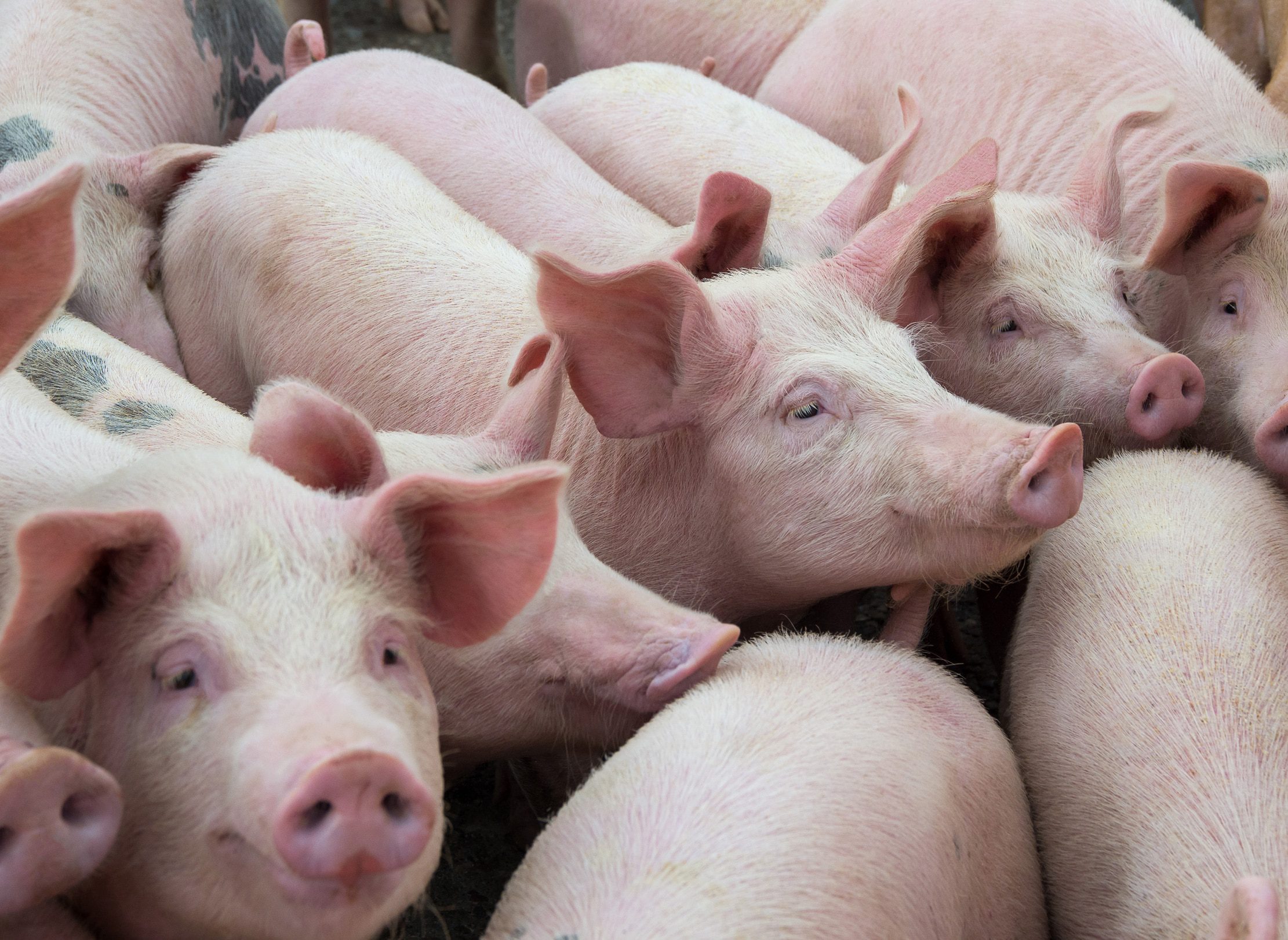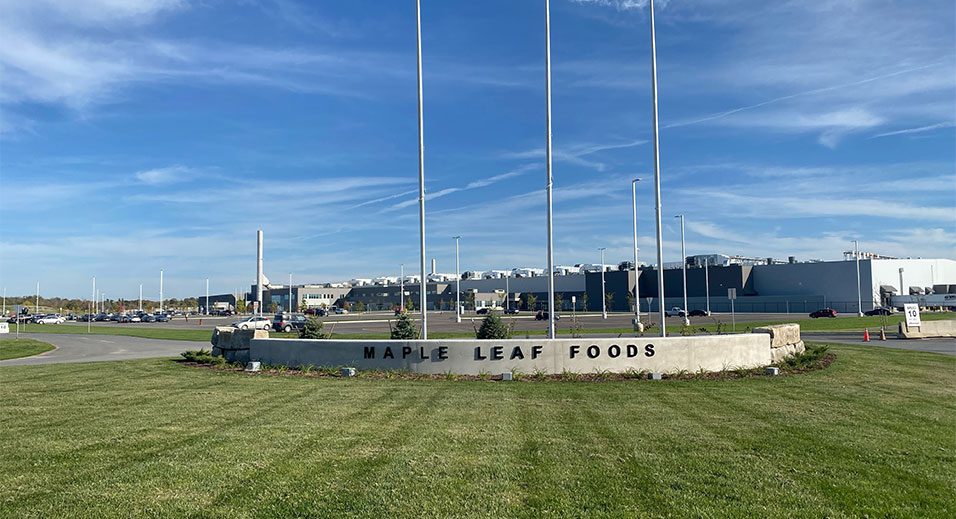Rory McAlpine co-authors an opinion piece on Canada’s preparedness to address animal health issues.
Rory McAlpine, SVP Government and Industry Relations, Maple Leaf Foods, co-authored an opinion letter titled, Animal Health Canada: A New Dead Bolt for the Front Door that has been published in a number of trade publications across Canada.
Here is the letter in full.
Animal Health Canada: A New Dead Bolt for the Front Door
“The core problems facing the governance of animal health policy in Canada … are the fragmentation of authority and responsibilities, the large number of actors inside government and out, and the lack of a streamlined and transparent mechanism for achieving overall coherence in a complex policy area. In short, the system needs to be rationalized.”
– Institute on Governance, 2013
Canada’s animal agriculture industries are having a tough go. Whether it is trying to get hog manure spread on soggy fields in Manitoba before the winter deadline or getting our beef and pork back into China in the face of an epic diplomatic standoff or watching meat and milk alternatives capture the hearts and stomachs of consumers, it is hard to feel optimistic.
On the other hand, global demand for animal protein continues to boom, few countries enjoy Canada’s net export status in red meats and, love them or hate them, our supply management systems in dairy and poultry are the envy of farmers in many other countries.
But for all that, there is a threat overhanging our animal industries – from farm gate to processor to lender – that could quickly make disruption to weather, markets and diets seem like modest problems. The threat is from border-closing foreign animal diseases and, more importantly, Canada’s sluggish and fragmented system to prevent, prepare, respond and recover from them.
Everyone in animal agriculture knows about the devastation of African Swine Fever: it is now likely that China has lost half of its hog production and the virus continues its deadly march across nine adjacent countries. Closer to home, whether it is Equine Strangles in Ontario, Porcine Epidemic Diarrhea in Manitoba or Bovine TB in British Columbia, production limiting animal disease pressures are very real and growing. Over the past thirty years we have survived more than a few crisis events and “near misses” in multiple species, including the human species where the disease in question had an animal origin (who can forget 2003 when we experienced both BSE and SARS).
And in response to the growing threats, from the formation of the Canadian Animal Health Consultative Committee in the 1970s to the Plant and Animal Health Strategy endorsed by federal-provincial-territorial (FPT) Ministers in 2017, we have had no shortage of strategies, coalitions, information networks, programs and tools. Government is good at “consultation” and industry is good at “lobbying”.
But it is not good enough. For a largely export dependent supply chain, that drives half of all farm income and provides 200 thousand Canadian jobs, it is not nearly good enough.
That is why, in November 2018, fourteen leaders of Canada’s national livestock, dairy and poultry associations, plus CEOs of leading meat and dairy processors, wrote a letter to FPT Ministers with this bold statement: “As industry leaders, we believe a better future lies in a new national governance model that … would bring industry, federal and provincial governments into a decision-making and resource-sharing partnership, notionally to be described as “Animal Health Canada””.
Since then, under the umbrella of the Canadian National Farmed Animal Health and Welfare Council, and with great support from Agriculture and Agri-Food Canada, the Canadian Food Inspection Agency and many provincial agriculture departments, a working group, supported by a CEO Champions group, has been dedicated to the building task, aiming to bring a new model forward for Ministerial and industry decision in summer 2020. As three individuals with long public and private sector careers in agri-food, and a few scars from crisis events, we are gratified to see such an inclusive, energetic effort to achieve the necessary change.
The options for change are many – from global examples like Animal Health Australia to low profile successes like the Canadian Blood Services Agency (CBSA). New Zealand has their unique Biosecurity New Zealand organization to protect both plant and animal health. The point is to acknowledge our challenges–in biosecurity, traceability, integrated surveillance, data sharing, wildlife disease management, emergency response, zoning and recovery programming — and resist the temptation of more incremental “improvement.” Without in any way compromising CFIA’s international role as Canada’s “competent authority,” we must rationalize the organizational landscape and lean into a model with the legal and financial underpinnings that will transform our way of working. We all know that “incremental improvement” will not be on anyone’s mind if we suffer a multi-billion dollar catastrophe, just as it was not when CBSA was created over twenty years ago in the wake of the tainted blood scandal.
We live in a large, diverse and complicated country. The results of the recent federal election remind us of that. But the pathogens, viruses, prions and parasites don’t care much. Nor do our trade partners if the worst comes to pass. With African Swine Fever knocking on the door, we need a new dead bolt. Animal Health Canada is our opportunity to seize in 2020.
Rory McAlpine
Senior VP, Government and Industry Relations
Maple Leaf Foods Inc.
Dr. Bruce Archibald
President of Archibald Innovations Inc. and former President, CFIA and Deputy Minister, Ontario Ministry of Agriculture, Food and Rural Affairs
Dr. Allan Preston
Former Chief Veterinary Officer and Assistant Deputy Minister, Manitoba Agriculture



